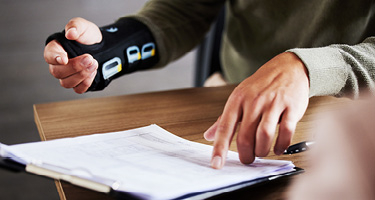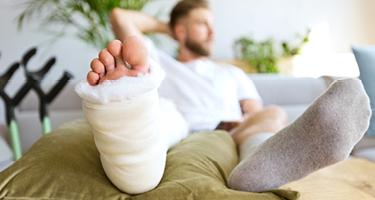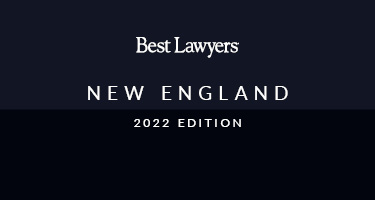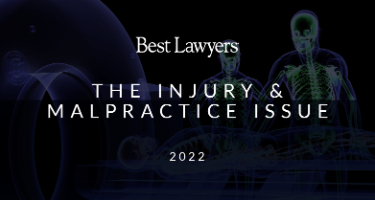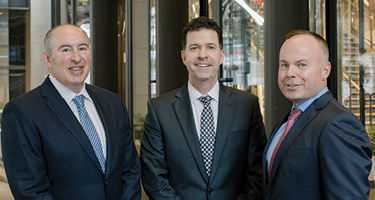Work-related mental illness and post-traumatic stress disorder are more common than you might think. Mental Health America’s research found 90% of employees report that their workplace stress affects their mental health, and 60% do not receive enough support from their supervisors to manage this stress.
Employee wellbeing should be a top priority for all companies. Unfortunately, it often isn’t the case. In some instances, no support and a lack of understanding can seriously impact mental health and make it difficult for employees to continue working.
Post-traumatic stress disorder (PTSD) affects as many as 15 million US adults in any given year. When there is a case for a workplace at the root of the problem, employees may be able to claim compensation.
Workplace Accident and Injury Law
Worker’s compensation law helps provide medical coverage, and loss of wages cover a range of work-related injuries and occupational diseases. We often consider work injuries to be physical or be disease-related such as COPD due to asbestos exposure. However, psychological, and mental illness can also be work-related.
PTSD has many root causes. It can be considered a workplace health condition depending on how it develops. Where an employer is found to be negligent or play a role in causing or exacerbating PTSD, compensation is possible. Today, PTSD is more widely recognized as a serious and debilitating medical condition. When caused by workplace stress or events, you can seek compensation.
Understanding PTSD
PTSD is a recognized medical condition that makes it difficult to recover after a traumatic event or experience. You may have experienced or witnessed an event that caused psychological terror, fear, or helplessness.
Sometimes PTSD is instantaneous, whilst other people’s symptoms only start years after the event. Delayed PTSD is common amongst people in the most dangerous job roles, such as the military and first responders.
PTSD vs Acute Stress
It is quite common for workers to be signed off with or diagnosed with Acute Stress Disorder or similar symptoms. This can be related to a work event. It isn’t uncommon for people to be worried that their Acute Stress is actually PTSD or vice versa.
There are clear differences between the two conditions. Acute Stress Disorder refers to a severe reaction to a traumatic occurrence within a month of the event. The symptoms relating to the condition will resolve within four weeks of the event occurring. PTSD, on the other hand, is a much longer and drawn-out condition. As already mentioned, it may not even be apparent for a significant time after the event.
How is PTSD diagnosed?
PTSD diagnosis involves a clinical interview with a trained mental health specialist. It usually incorporates direct questions in an interview format as well as questionnaires.
The interview element of the PTSD diagnosis process helps to determine whether you have specific symptoms attributed to this condition. The interview may include several elements such as:
- the Structured Clinical Interview for DSM (SCID)
- the Structured Interview for PTSD (SI-PTSD)
- the PTSD Interview
- The Anxiety Disorders Interview Schedule-Revised (ADIS-R)
- the Clinician-Administered PTSD Scale (CAPS)
- the PTSD Symptoms Scale Interview.
The questionnaire element of the PTSD assessment process is focused on ensuring diagnosis is reached as quickly as possible. There is a range of standardized questionnaires and surveys you might complete. You can discuss these with your medical team.
Do you meet the criteria for PTSD diagnosis?
After assessment your mental health team can determine whether you meet the criteria for PTSD. These are:
1. Exposure to a traumatic event
The first criterion for PTSD diagnosis is exposure to a traumatic event. A traumatic event can be objective and differs from person to person. However, often it involves the threat of or actual death, serious injury, sexual trauma, or violence.
Exposure to the event means experiencing it directly, witnessing it, learning that someone close to you has experienced said event or repeatedly being exposed to details of an event.
2. Re-experiencing the trauma
People with PTSD repeatedly re-experience and reimagine the traumatic event. This often comes in the form of recurrent and intrusive memories of the event. It can also be through traumatic dreams of the event and very real lifelike flashbacks of the event, as if it is happening again. Some people also experience a physical reaction to certain triggers that remind them of the event, such as particularly loud noises or bright lights.
3. Active avoidance of anything that could remind of or relate to the traumatic event
The third criterion for PTSD diagnosis is an active avoidance of stimuli that remind you of the traumatic event. This could mean avoiding situations, people, conversations, or areas that are linked to it.
4. Changes in personality and emotional responses
The fourth criterion is a marked change in your responsiveness, personality, and emotions. People may experience an inability to remember parts of the event known as dissociative amnesia, lowered self-esteem, blaming yourself for the event, feeling shame or other significant negative motions.
5. Recurrent feelings of arousal
People diagnosed with PTSD will also experience persistent and recurrent feelings of arousal. This could include outbursts of anger, lack of impulse control, concentration problems, sleep issues and obsessive-compulsive tendencies and hypervigilance.
For a diagnosis of PTSD, people must experience the above five symptom groups in some way or another for over a month. The criteria must also be experienced to a severity level that it disrupts or impacts their activities of daily living, both at work or in their personal life.
Common Causes of PTSD
The primary cause of PTSD is the traumatic event itself that is outside the normal range of human experiences. Events that could be the trigger include everything from amputations to sexual assault, truck accidents to verbal abuse and experience of war to workplace stress and harassment.
PTSD and First Responders
In some industries, PTSD claims are much higher than in others. First responders, for example, regularly deal with high levels of trauma. If their organization and management do not properly support them, then a PTSD personal injury claim is a likely consequence.
Long-Term Workplace Trauma
Long-term workplace trauma is another recognized condition and can lead to cases of PTSD. Individuals may be subject to extreme levels of pressure, stress, or discrimination on a daily basis for years and realize they are suffering from the condition after many years of exposure. Anyone suffering unduly in the workplace owes it to themselves to explore their mental state and consider whether there could be an underlying trauma.
PTSD is a natural reaction to a horrific event, but it doesn’t make it easy to live with. An estimated 3.6% of the US population experiences PTSD in any given year. While not all cases of PTSD will be work-related, a significant portion will be caused by events at work. Again, not all of these will be linked to employer negligence, but there are regular cases where an employer has not done enough to protect their employees from trauma.
What’s My Outlook with PTSD?
People who have work-related PTSD are much more likely to experience other mental health problems. These include a range of conditions from depression to alcohol addiction and anxiety to substance abuse or addiction.
PTSD can make it hard to socialize and maintain relationships, and the fatigue and lethargy that comes with the condition can make day to day life difficult.
People living with PTSD never usually consider themselves cured. While the condition can be well-managed and the most severe symptoms such as flashbacks can be minimized, it isn’t a condition that simply disappears.
The level of trauma may impact how severe the illness is and how long it affects someone’s life, but this is entirely personal to the individual. Some people may find they can return to a normal life, even continuing a similar job role, while others cannot work again due to their experiences. Each case is individual, and where negligence is evident, cases deserve to result in compensation for the injured party.
What Personal Injury Settlements are available for PTSD?
Claiming compensation for PTSD requires the help of a professional attorney. It is completely possible with the right circumstances. If your case isn’t clear cut, a good lawyer should be able to help.
In the following circumstances, you may be able to begin a compensation claim for PTSD:
- You have proof your condition was caused primarily by your work: some mental health conditions have multiple causes; however, PTSD is linked to a specific event. Therefore, you will need evidence of the event and how it has impacted your health and is the root cause of your PTSD.
- You have a PTSD diagnosis from a mental health professional. As we’ve already explained, the process for PTSD diagnosis is comprehensive and with this proven, you have a strong case to link your PTSD with your workplace problems or trauma. In addition, an independent doctor may provide a second opinion for your diagnosis in a personal injury case.
You must prove that the PTSD is linked to the workplace. Your representation should put together a case to show a direct link between your PTSD and your workplace. To claim damages, most personal injury claims for PTSD will have to prove that you cannot return to your job due to the condition or will not be able to carry it out in the same way. Your representation must also prove your company’s negligence in not mitigating the risk of the traumatic event that led to the PTSD diagnosis.
What’s the difference between a personal injury and workers’ compensation claims?
It can be confusing when considering a compensation claim for PTSD, whether you make a personal injury claim or a workers’ compensation claim. Workers’ compensation is an insurance-based process, and you are limited in the settlement you can receive. Personal injury claims are based on fault and your employer’s negligence in not protecting you or providing adequate support from the trauma at the root of your PTSD.
Damages are also limited in the world of workers’ comp. In workers’ compensation cases, you are not able to claim for damages for pain and suffering. With a PTSD personal injury claim you can recover all the damages suffered. This can be an extensive list including:
- Loss of earnings
- Medical bills
- Future medical expenses
- Permanent impairment damages
- Lost earning capacity
- Pain and suffering
- Loss of enjoyment of life
There are also other damages your attorney can claim if relevant to your case. Personal injury claims are the most reliable way of ensuring your employer properly compensates you for your loss due to your PTSD.
Protecting your Mental Health in the Workplace
PTSD is one of the more severe mental health conditions that may be caused by trauma in the workplace. Protecting your mental health is as important as your physical health. Your employer has a legal obligation to ensure your wellbeing is a priority in your place of work. Underestimating the impact of stress and trauma very quickly falls into the area of negligence, especially if an employee is diagnosed with PTSD.
Compensation claims to support people living with PTSD can help to ensure they can try and return to manageable life, while their condition may limit them in many ways. Where somebody is at fault, there is cause for them to compensate the injured party, even when the injury may not be physically visible.







